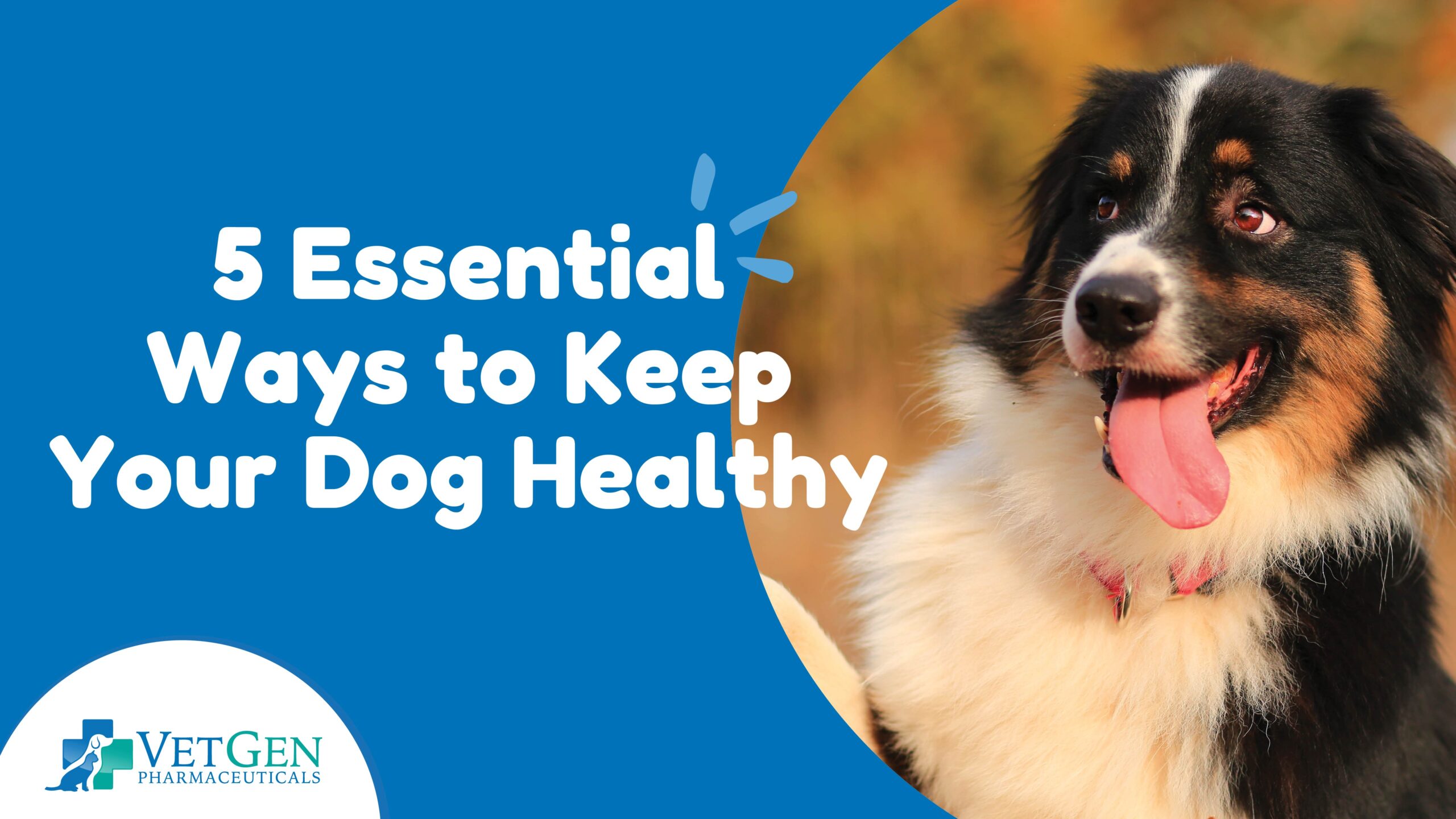Pets bring so much joy and fun into our lives, especially dogs – man’s best friend.
Dog owners know that it’s a special bond you form with your four-legged friend that makes you hope they can be with you forever.
It’s more than just giving lots of love and going for a walk every once in a while.
Well, there are a few things you can do to make sure your dog has a long, healthy life.
Just like a human needs to develop and maintain consistent healthy habits to live a healthy life, animals do too.
Dogs are active, predator-minded creatures by nature, so sitting inside and being limited to small yards is not a natural way for them to stay healthy.
You need to use these five essential tips to keep your dog healthy.
Daily Exercise
Exercising both your dog’s body and mind every single day will help them stay at a balanced weight and well-behaved.
This is especially true for large breed dogs who need a lot of activity to burn off the energy! When they burn off energy daily, they stay lean and avoid unnecessary weight gain.
Keeping your dog at a healthy weight means higher chances for a longer life, and lowers the risk of joint pain.
If you notice your dog experiencing joint pain, adding some of the best supplements for dogs to relieve their ailments can help.
Proper Nutrition
Feeding your dog the correct amount of food is just as important as the kind of dog food you feed them.
Serving your dog the correct portions, and limiting their access to food when its not mealtime will prevent them from gaining unnecessary weight.
Dogs need a balanced diet to stay healthy.
Be sure to check the ingredients on the dog food you buy, to make sure that you avoid harmful additives and preservatives that may not be great for your dogs health.
In order to do your best to promote a healthy skin and coat in your dog, try giving them the best supplements for dogs that are formulated to treat the health of their skin.
Dental Health
One of the main essential ways you can keep your dog healthy is to stay on top of their dental hygiene.
Bacteria and germs can grow in the plaque on your dog’s teeth, which if not taken care of on a regular basis will only cause gum issues and potentially infection.
Keeping your dog’s mouth clean and healthy will keep your dog healthy.
Grooming
Grooming and brushing your dog on a daily basis is a great way to bond with your dog and keep an eye on their skin health at the same time.
When you brush your dog’s coat, you can clear out dead skin, shedding hair, and spot any potential issues that might be hard to see through their fur.
If you notice that your dogs coat isn’t thick and shiny, try giving them a daily supplement for dogs to help promote a shiny coat and healthy skin.
If there is anything abnormal about your pets skin or coat, be sure to call your vet.
Staying Hydrated
Providing your dog with access to fresh, clean, and cold water at all times is very important to their overall health.
It is suggested that a dog drink a half ounce of water for every pound of body weight. A healthy dog is a hydrated dog!
For more information about some of the very best supplements for dogs that are available to help with joint pain and health, and benefit the skin and coat, click here.
Frequently Asked Questions
What should I feed my dog?
A high-quality commercial dog food that meets your dog’s age, size, and breed requirements is a good choice. Consult with your veterinarian to determine the best food for your dog’s specific health needs.
How much exercise does my dog need?
The amount of exercise your dog needs depends on their breed, age, and health. Most dogs benefit from at least 30 minutes to an hour of exercise per day. Consult with your veterinarian for specific recommendations.
How often should I take my dog to the vet?
Adult dogs should have annual check-ups, while puppies and senior dogs may require more frequent visits. Regular visits to the vet can help detect and treat health issues early.
What vaccinations does my dog need?
Dogs need core vaccinations such as rabies, distemper, parvovirus, and hepatitis. Your vet may recommend additional vaccinations based on your dog’s lifestyle and location.
How can I keep my dog safe from parasites?
Use regular flea, tick, and heartworm preventatives as recommended by your vet. Keep your dog’s living environment clean and regularly check them for signs of infestation.






